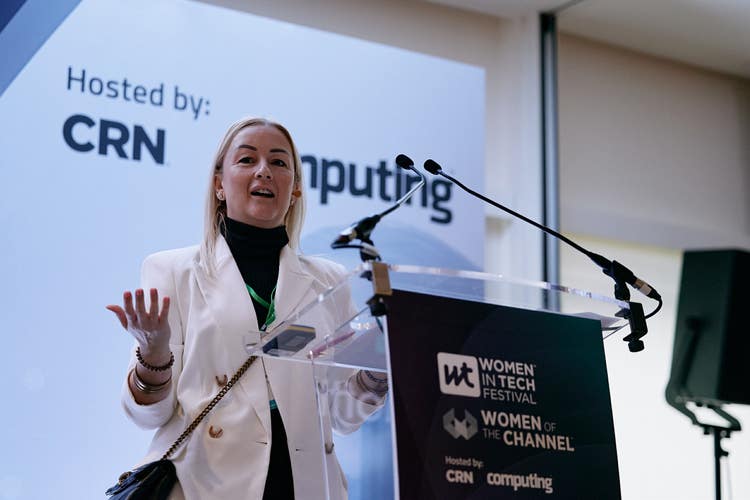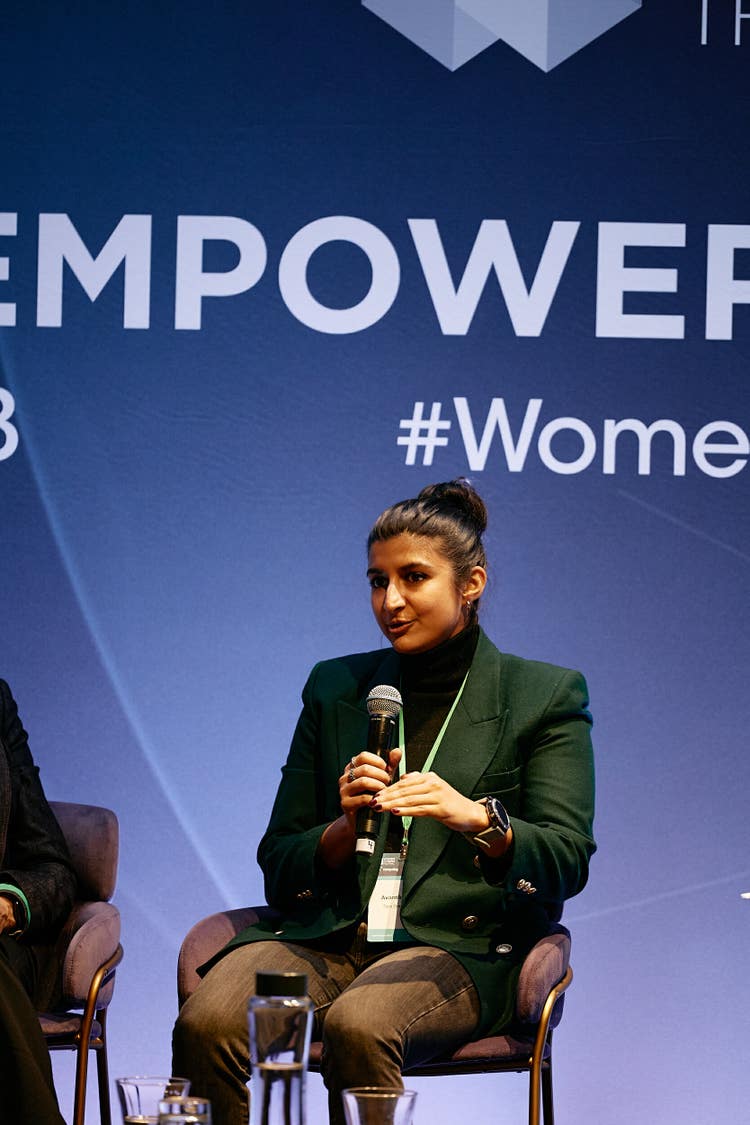'Feel the fear and do it anyway': Top advice from the Women in Tech Festival 2023
We round up the most essential words of wisdom shared during The Channel Company’s Women in Tech Festival 2023

Channel leaders sat down to discuss how to foster a diverse workplace and gain a seat at the table during Women in Tech Festival 2023.
An array of panellists shared their experience of making their way through the industry, the feelings of imposter syndrome and making their voices heard.
Here's a collection of some of the top advice shared throughout the event.
Structure and informality go hand in hand for equity
Jacqui Leggetter, head of integration at DWP Digital, opened by drawing focus to the importance for organisations to have a structure, programmes and schemes to support a diverse workforce.
"Creating network groups and actively sponsoring people, actively mentoring, having senior leadership reaching out and offering mentorship to someone who was in a minority group," she explained.
"I think doing schemes like that and recognising that leaders need to put in a bit of effort. It doesn't just happen naturally."
"Creating equal opportunities doesn't create equity," she added. "So, we need to be offering those network groups, more mentoring and a way to give seats at the table."
Leggetter also stressed the importance of having informality, and keeping the conversation open so that employees feel like they are in a safe space where they have an open dialogue about cultural identities and differences.
This includes celebrating diverse holidays and events, learning about their significance, and making people from minority groups feel included.
Advocacy and mentorship are key
On a similar wavelength, panellists also highlighted the important role advocacy and mentorship still play in helping women up the ladder.
"I moved to the UK just over four and a half years ago, to start a brand-new career in finance and I didn't have a finance background; I have a biotech background," explained Avantika Gupta, VP for UK and Europe at Type One Ventures.
"But in my previous job I had found my ally, someone who I could work really closely with and who had that trust in me.
"He got asked to join Type One Ventures because he had met the founder and he basically said, ‘we come as a team or neither of us are coming. You have to take us both'.
But Gupta also emphasised that advocacy does not need to always come from others.
"I think we've all had these very interesting stories about someone else being our advocate, but I think we can't forget how much we need to advocate for ourselves.
"Moving to the UK, my husband and I both quit our jobs and showed up.
"Neither of us had been here before, it was absolutely new.
"But that was because I said to myself, if I don't stand up for myself now and make that career change, I will never be able to be brave enough to do it in the future when I've got all sorts of other responsibilities that I need to worry about.
"And so, it's about being able to look inside yourself and say, ‘It doesn't matter how difficult it gets, I will get up and keep fighting for me.'"
"Feel the fear, but do it anyway"

Zoe Dronfield, a business developer at Trustmarque, spoke about the repercussions that unconscious bias can have on women's confidence.
"I think we need to focus on our accomplishments. Often we focus on what we haven't got, but what can we bring to the table? A lot, actually."
Gupta echoed: "Yes, and I think it's about understanding how transferable our skills are, and also how transferable people we meet can be.
"When we interview new people to join our team, it's about looking at the rest of their background, what they actually did, regardless of what their job title was before, how could they add a different perspective, or a new way of looking at the same problem that I deal with every day?"
She continued: "It's more than the sum of its parts, every person you bring onto your team, you have to look at what else they could add, not just can they do the skill set that I've requested?"
Dronfield also added: "And to be honest, we don't sit up here and exude confidence. I get nervous. I come offstage a gibbering wreck and think, ‘did I say that right?'
"I just like to keep it real, we're humans at the end of the day - so just feel the fear and do it anyway, because it's important to have the voice."
Creating the right environment

When asked about how to bring more women into C-level positions in the tech industry, Gupta explained the importance of developing a hiring system based on the research that encourages and is more inclusive of women.
"But it's also making it an environment that people feel like they can stay long term, where they've got opportunity to grow.
"And that is simple things like having time off, if you want to go do some studying, having a budget available, if you want to do some career development, professional development, those are a very simple steps businesses can take to give people the opportunity to progress their own career, and letting them take the time, make the mistakes, move forward themselves and understand for themselves.
"And then also saying outright, ‘I'd love for you to learn this skill, because I think it would add a string to your bow.'"
Start-ups and entrepreneurship to get more experience
Concluding the panel, Kavita Reddi, co-founder at Voxta Voce, encouraged the audience to give smaller, newer companies a chance to help grow their careers.
"I think often we end up working in large organisations, which are great for early-stage careers, which allow one to build a bank of expertise. But when you when it comes to taking on new responsibilities and growing and taking on leadership roles, often going to a start-up or going to a smaller organisation is a very concrete way to do so," she said.
"So you become a big fish in a small pond and is a really useful way to grow and sit at the top table and one that I don't think enough people do."
Dronfield also added: "But also entrepreneurship. Setting up an organisation and just having that. I set up a childcare centre care agency many years ago, and was the managing director a position I wouldn't have been able to get at the time, but I was already one."